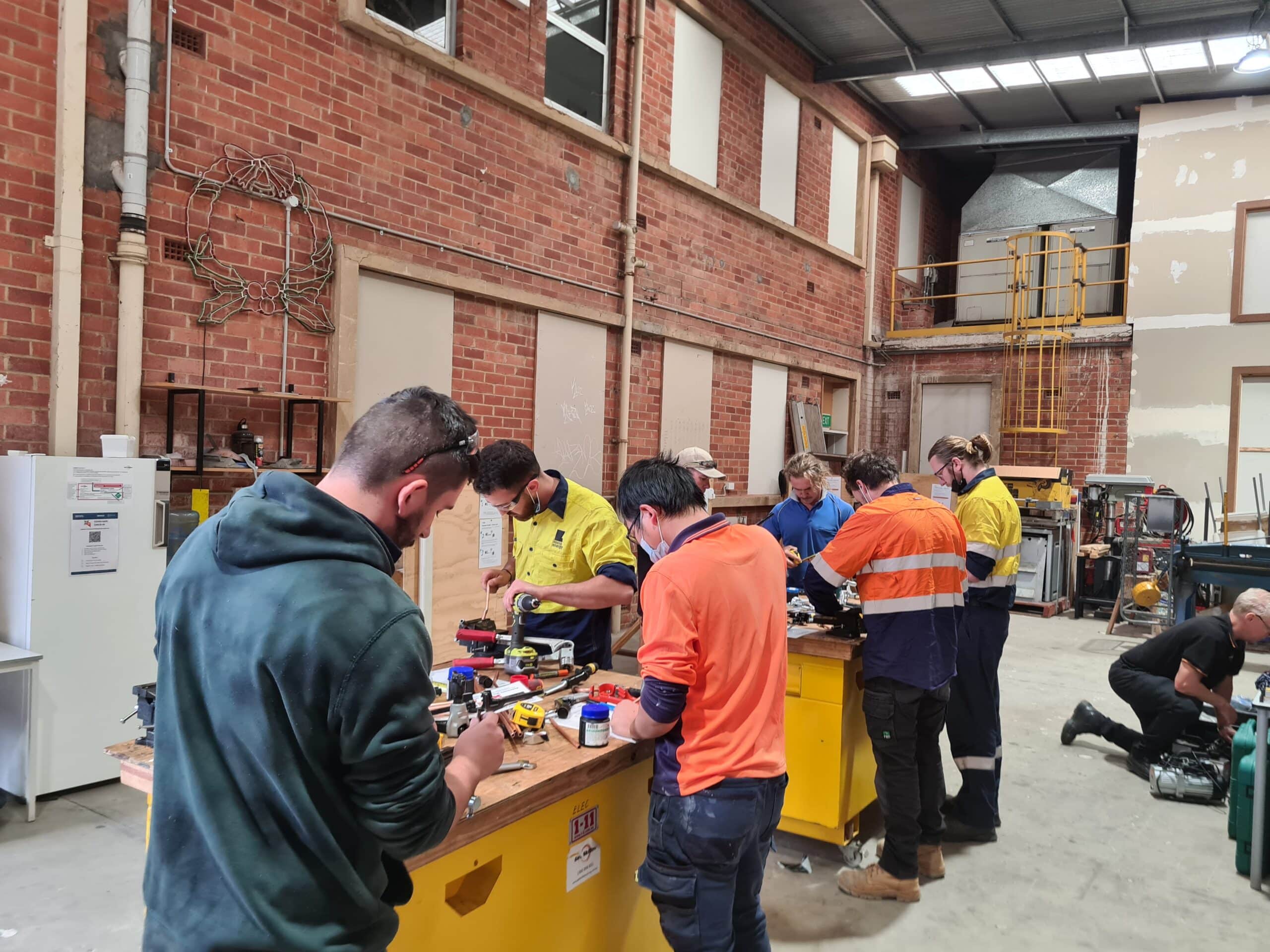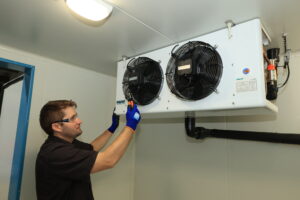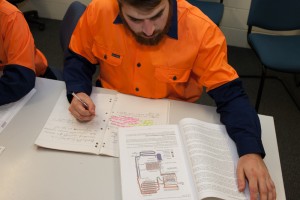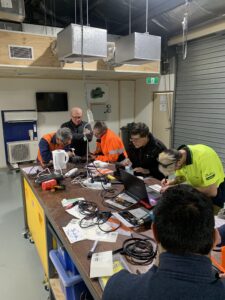The weather in Australia means that air conditioning and refrigeration is always in demand. While these appliances are based on simple principles, they contain harmful refrigerants that can only be handled by a qualified professional.
Becoming licensed as an air conditioning and refrigeration technician is a great career path for anyone who enjoys working with their hands. As a qualified technician, you can work in roles across Australia, and you’ll be well rewarded for your efforts.
In this article we’ll explore air conditioning and refrigeration salaries in Australia, as well as how you can become a qualified technician.
Air Conditioning and Refrigeration Salary in Australia
In Australia, a qualified air conditioning and refrigeration technician can earn between $85,000 and $105,000 per year. Your salary depends on your experience, location and whether you specialise in certain types of systems.
For instance, commercial refrigeration technicians may earn more than technicians that only install split system units.
Air conditioning and refrigeration technicians are always in-demand in Australia. It’s a hot country, and residential air conditioning is a big industry, but commercial refrigeration is also crucial. This means that becoming a qualified refrigeration mechanic could help you find work almost anywhere in the country.
How to Become an Air Conditioning and Refrigeration Technician
Becoming an air conditioning technician requires you to complete a Certificate III in Air Conditioning and Refrigeration. You can do this two ways:
- As part of a 4-year apprenticeship, or
- Upgrade your Certificate II qualification with 12-24 months of training through an RTO
If you choose an apprenticeship, you’ll undergo a mix of theoretical learning and on-the-job training with supervision from a qualified tradesperson. Upon successful completion of your Certificate III, you can apply for a Refrigerant Handling Licence (RHL) through the Australian Refrigeration Council.
Your ARCtick licence verifies that you are appropriately skilled in the safe handling of refrigerants.
It’s also possible to continue your training and increase your earning potential by undertaking a Certificate IV in Air Conditioning and Refrigeration Servicing, or a Diploma of Air Conditioning and Refrigeration Engineering.
Advancing your study may allow you to earn more and take on supervisory and management roles within the refrigeration industry.
Alternatively, those who already hold a Certificate II in Split Air Conditioning and Heat Pump Systems can upgrade their licence by undertaking a Certificate III. This takes 12-24 months depending on your existing skill level. When you commence training, your skills will be assessed, and your instructor will determine which units of competency you need to complete to earn your qualification.
Cert II vs Cert III in Air Conditioning and Refrigeration
There is some confusion in the refrigeration industry surrounding Certificate II and Certificate III qualifications. The simple answer is that Certificate II qualifications are designed for electricians wanting to upgrade their licence and offer an additional service. Certificate III training is intended for those who want to become qualified refrigeration technicians.
With a Certificate II in Split Air Conditioning and Heat Pump Systems you can:
- Install and decommission single-head split system air conditioners, if
- The value of the work is less than $3,300
Note that Certificate II training doesn’t equip you with the competencies needed to diagnose faults, service or repair air conditioners and refrigeration systems.
With a Certificate III in Air Conditioning and Refrigeration you can:
- Install all types of split system and ducted air conditioning
- Install commercial refrigeration systems
- Install heat pump plant and equipment
- Service and repair all air conditioning and refrigeration
Air Conditioning and Refrigeration Apprentice Salary
You’ll need to undertake a 4-year apprenticeship to become a qualified air conditioning technician in Australia. Studying an apprenticeship allows you to learn a skill while being paid for your work.
Apprentice pay rates vary depending on your age, education, experience level, when you started your apprenticeship and more. As a guide, we’ve provided the pay rates for a full-time apprentice that completed year 12 and is working in the residential construction industry:
Hourly Rate | Weekly Pay Rate | |
1st Year Apprentice | $15.66 | $595.01 |
2nd Year Apprentice | $18.28 | $694.51 |
3rd Year Apprentice | $20.90 | $794.01 |
4th Year Apprentice | $24.82 | $943.26 |
Pay rates as at December 2023
As an average, air conditioning apprentices in Australia are earning approximately $52,725 per year.
Apprentices also earn penalty rates for things like over-time and weekend work. Keep in mind that the above pay rates are the minimum set out by the Building and Construction Award. Your employer may pay more, depending on their policies and where you’re working.
Upgrade Your Career with Air Conditioning and Refrigeration Training at Get Skilled!
Air conditioning and refrigeration mechanics are some of Australia’s most in-demand trades. As a qualified tradesperson, your unique skills are highly valued, so you’ll have access to rewarding positions across the country.
Becoming an air conditioning technician requires you to complete a Certificate III in Air Conditioning and Refrigeration through an RTO like Get Skilled!
Get Skilled offers Certificate II and Certificate III training in air conditioning and refrigeration systems. If you’re looking to become a qualified technician, or if you are an electrician looking to upgrade your licence, we can design a program just for you.
Get Skilled offers air conditioning courses for electricians right across Australia. Alternatively, you can complete Certificate III training at our Brisbane location.
Contact us to find out more, or speak to our team if you need help selecting the right training package for your career goals!




